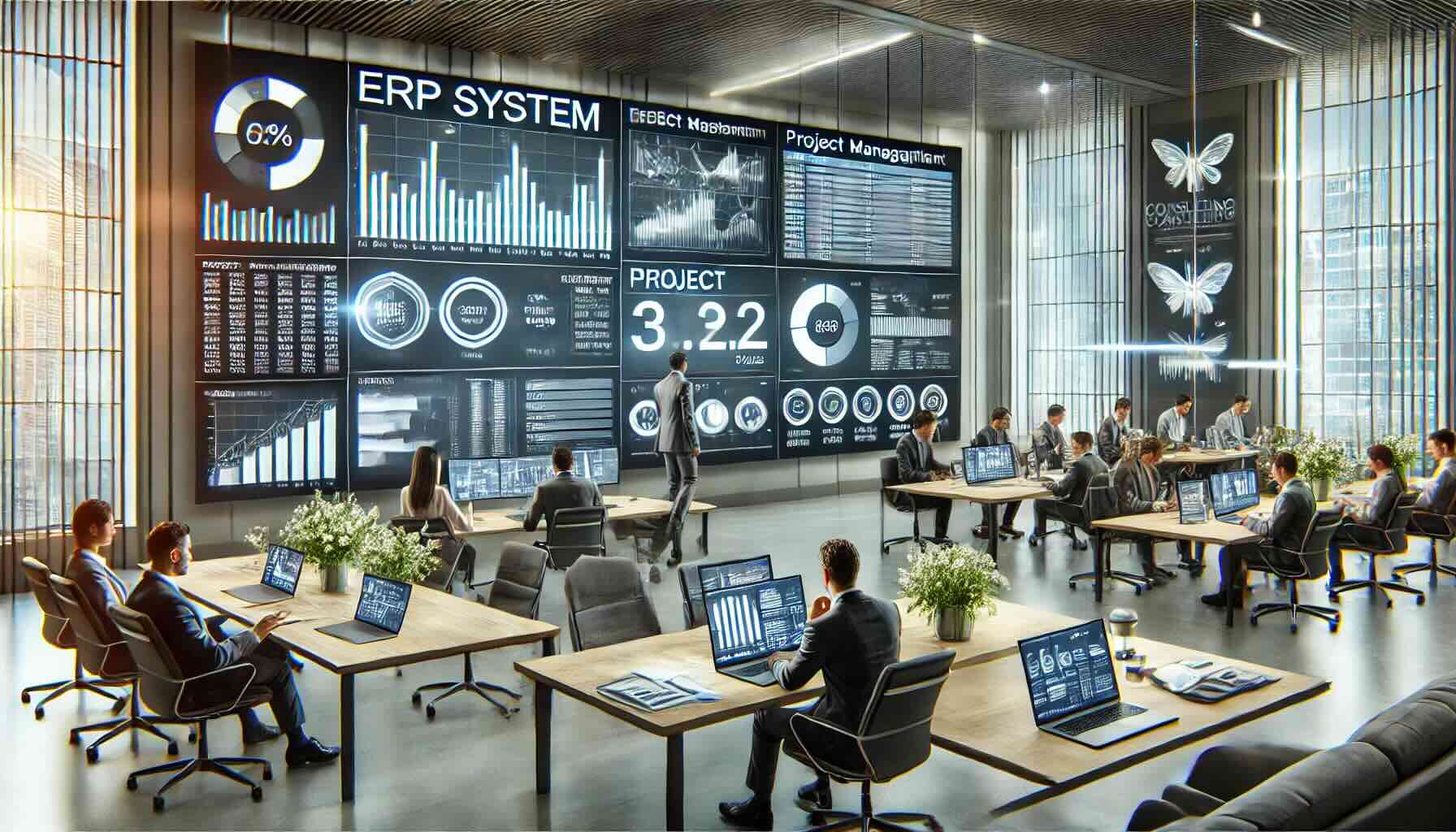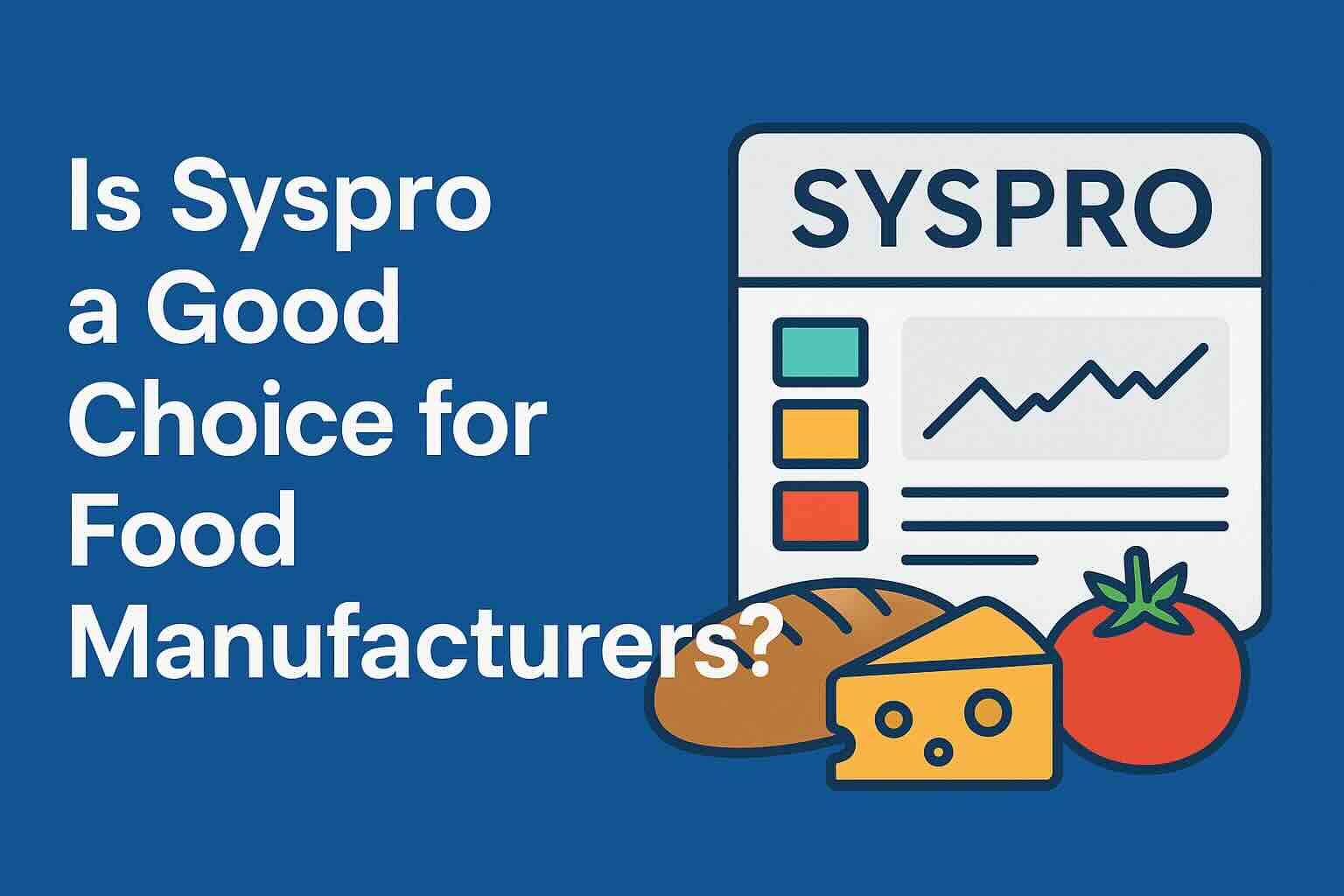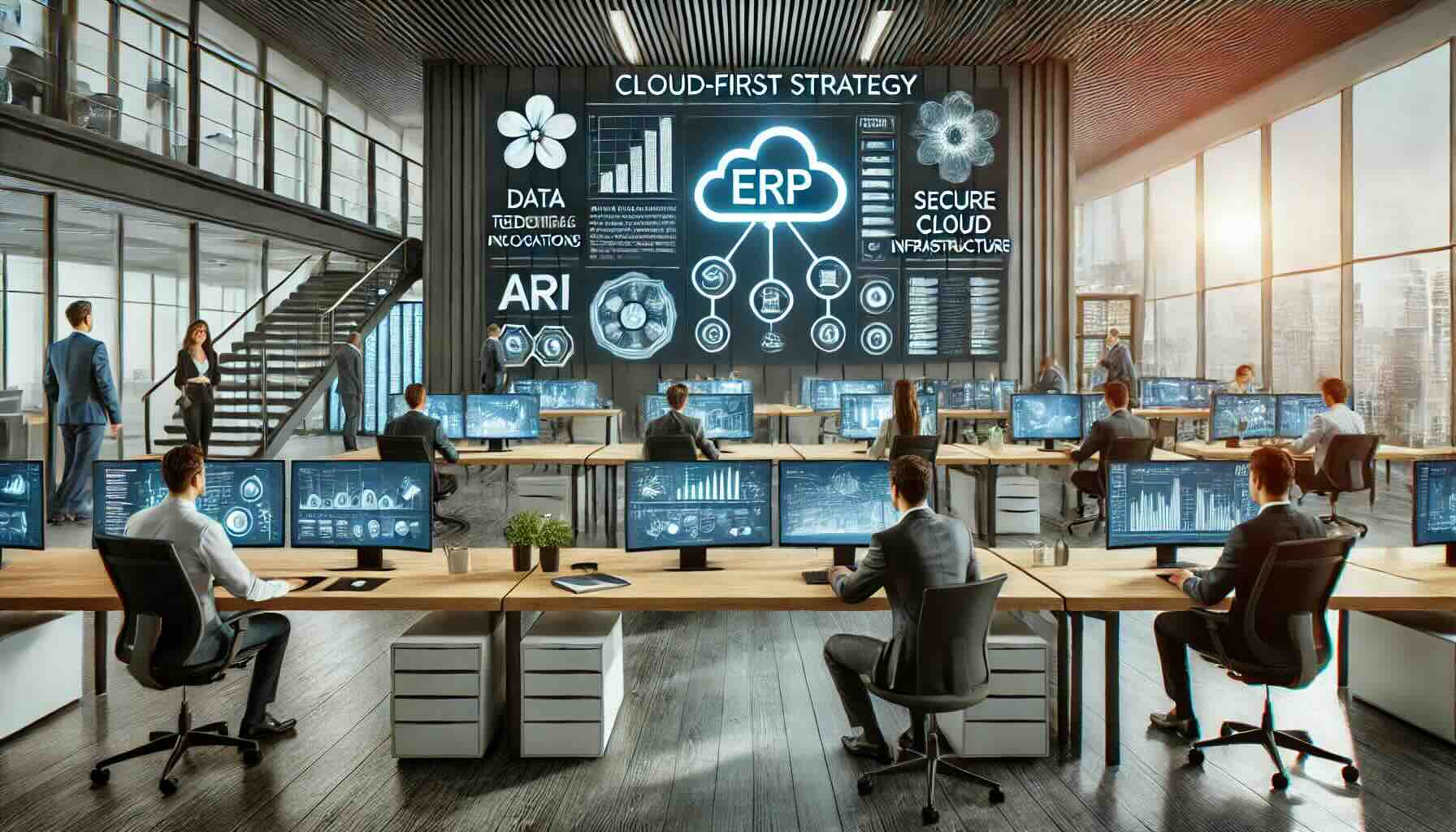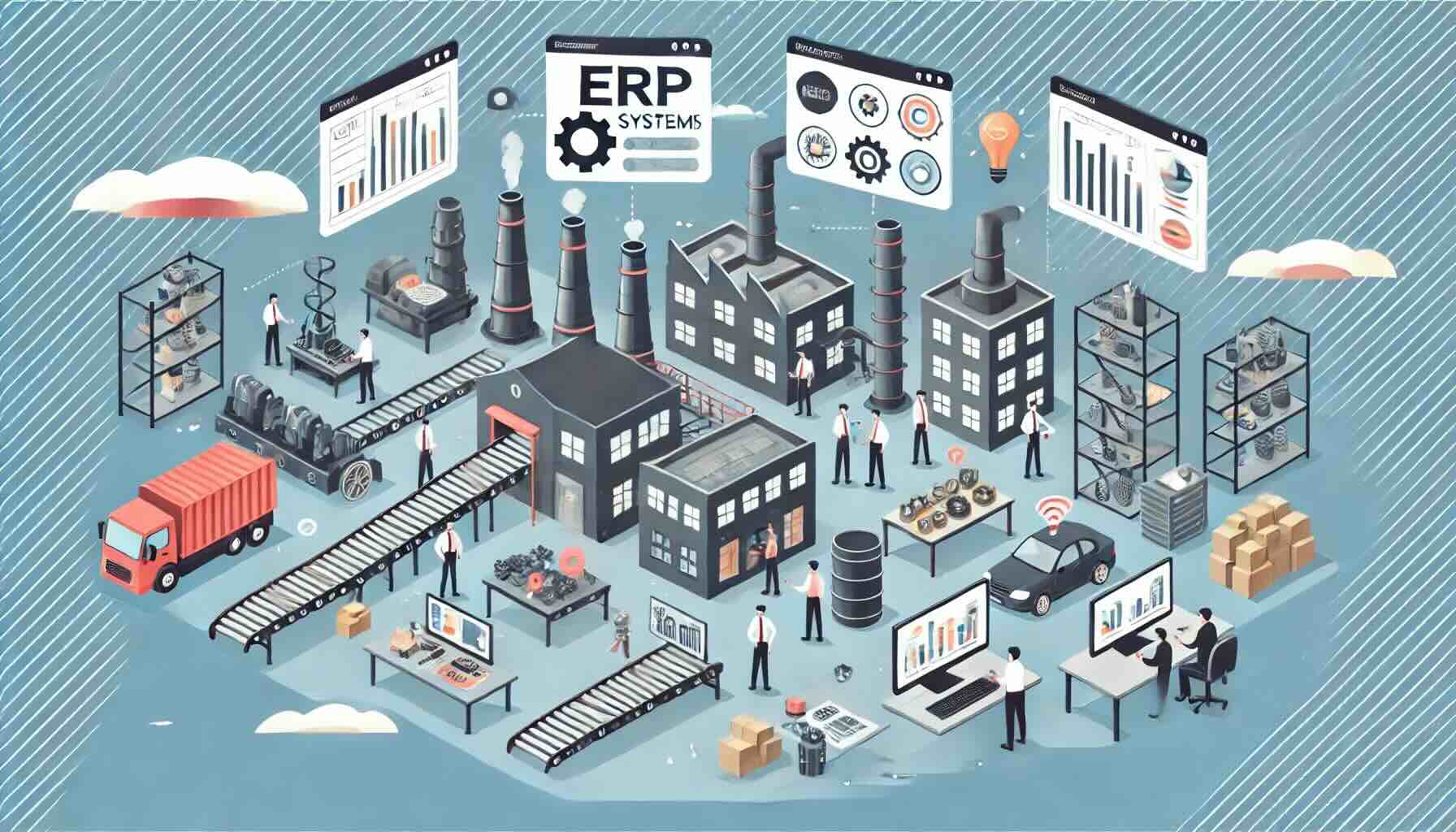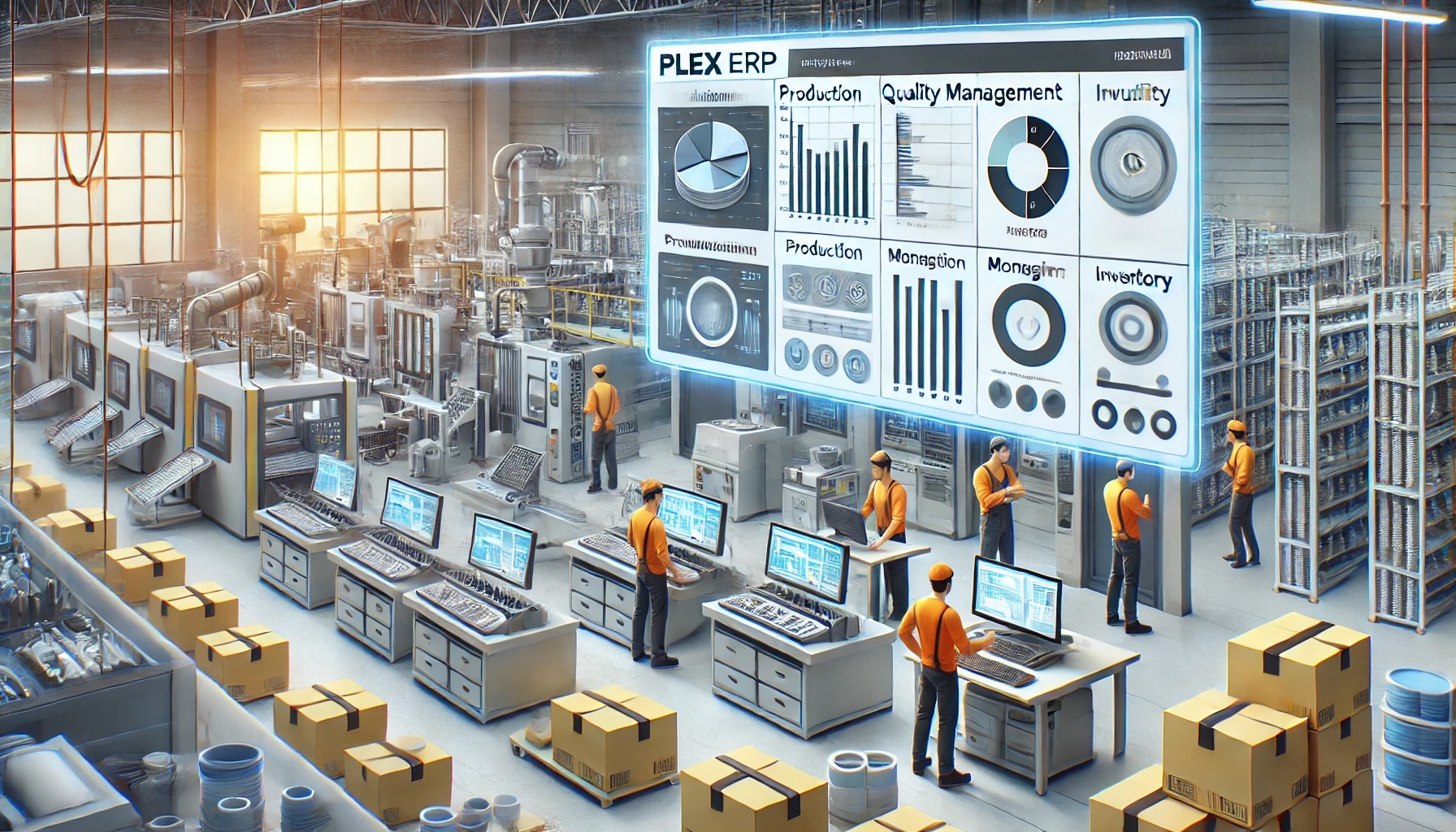Compare the Best ERP for Small Businesses
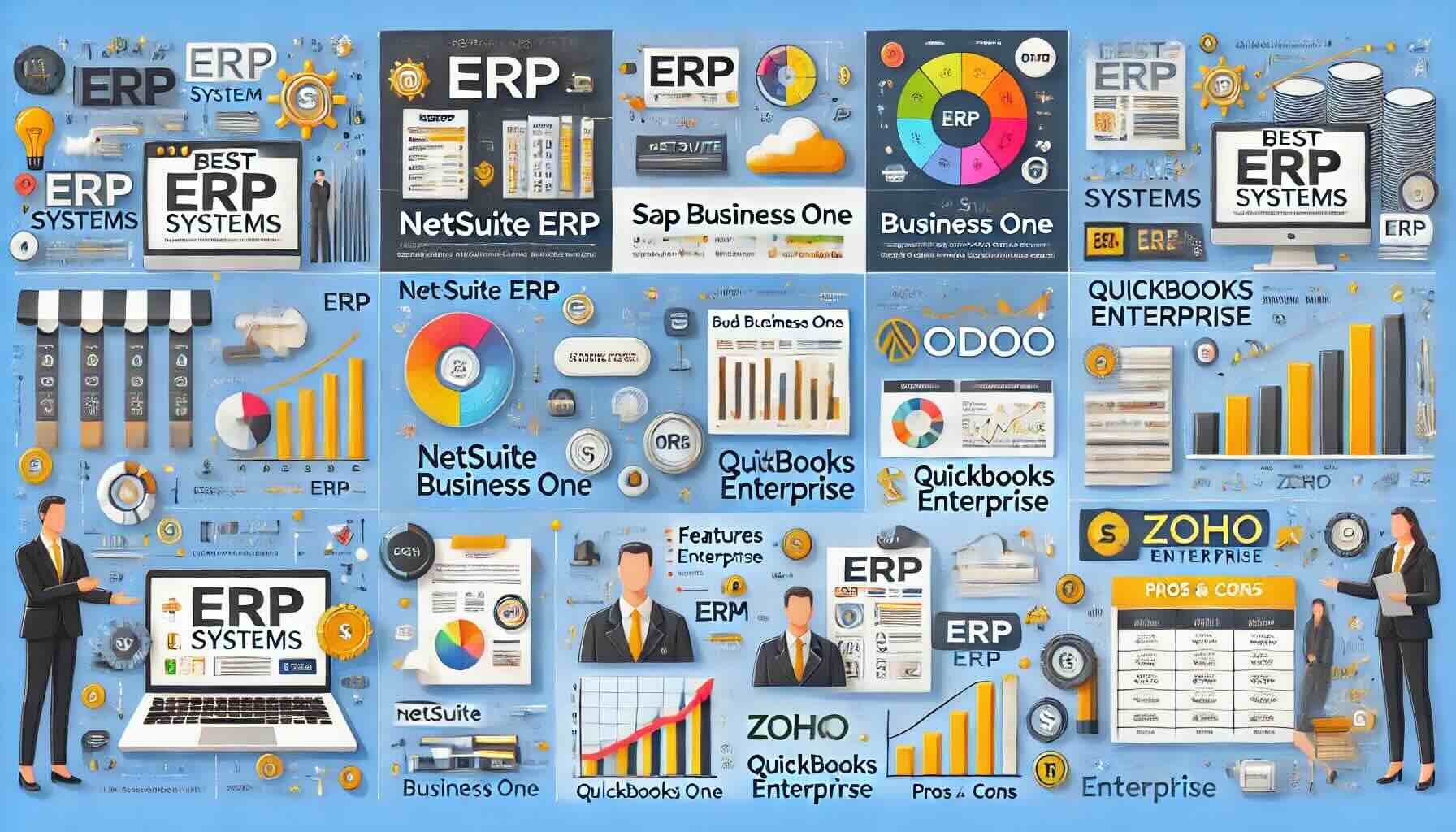
In today’s competitive market, small businesses need efficient solutions to manage their operations effectively. Enterprise Resource Planning (ERP) systems offer comprehensive solutions by integrating various business processes. However, choosing the best ERP for small businesses can be a daunting task. In this blog, we will compare the top ERPs specifically designed to cater to the needs of small businesses.
What is an ERP System?
ERP systems are software platforms that integrate various business functions like finance, human resources, supply chain, and customer relationship management into a single unified system. This integration helps in streamlining processes, improving data accuracy, and enhancing overall business efficiency.
Why Do Small Businesses Need ERP?
Small businesses face unique challenges such as limited resources, tight budgets, and the need for rapid scalability. An effective ERP system can help small businesses by:
- Automating routine tasks.
- Reducing operational costs.
- Improving decision-making with real-time data.
- Enhancing customer service.
- Ensuring compliance with industry regulations.
Top ERPs for Small Businesses
Here are the best ERPs for small businesses, evaluated based on features, scalability, ease of use, and cost-effectiveness:
1. NetSuite ERP
NetSuite ERP is a comprehensive cloud-based solution designed to help small businesses manage their financials, operations, and customer relationships. With its advanced capabilities in inventory and order management, CRM, and e-commerce integration, NetSuite provides a robust platform for growing businesses. Its scalable nature ensures that as your business expands, NetSuite can accommodate your increasing needs, making it a future-proof choice.
Features:
- Comprehensive financial management.
- Advanced inventory and order management.
- CRM capabilities.
- E-commerce integration.
Pros:
- Scalable for growing businesses.
- Strong analytics and reporting tools.
- Cloud-based solution with regular updates.
Cons:
- Higher cost compared to some competitors.
- Implementation can be complex.
Best For: Businesses looking for a robust, scalable ERP with extensive features.
2. SAP Business One
SAP Business One is specifically designed for small and midsize businesses, offering an integrated approach to manage critical business functions like financials, sales, and inventory. With real-time analytics and mobile access, SAP Business One empowers businesses to make informed decisions quickly. Its strong support and community make it a reliable choice for small businesses needing a customizable ERP solution.
Features:
- Integrated financials, sales, and inventory management.
- Real-time analytics and reporting.
- Mobile access.
Pros:
- Designed specifically for small and midsize businesses.
- Customizable to fit specific business needs.
- Strong support and community.
Cons:
- Can be expensive for very small businesses.
- Customization and implementation can be time-consuming.
Best For: Small businesses that require a highly customizable ERP with strong support.
3. Odoo
Odoo is an open-source ERP that offers a suite of business applications including CRM, e-commerce, accounting, and inventory. Its modular design allows businesses to pick and choose the applications they need, making it a highly customizable and cost-effective solution. With a strong community and a free basic plan, Odoo is an excellent choice for small businesses looking for flexibility without breaking the bank.
Features:
- Comprehensive suite of business applications.
- Open-source and highly customizable.
- CRM, e-commerce, accounting, inventory, and more.
Pros:
- Cost-effective, with a free basic plan.
- Modular design allows businesses to choose only the features they need.
- Strong community support.
Cons:
- Some advanced features may require technical expertise.
- Customer support can be limited in the free version.
Best For: Small businesses looking for a flexible and cost-effective ERP solution.
4. QuickBooks Enterprise
QuickBooks Enterprise is known for its advanced financial management capabilities, making it a top choice for small businesses focused on strong accounting features. It also offers inventory tracking and order management, making it suitable for businesses transitioning from QuickBooks Online. With its user-friendly interface, QuickBooks Enterprise simplifies complex financial tasks and provides a solid foundation for business growth.
Features:
- Advanced financial management.
- Inventory tracking and order management.
- Payroll management.
Pros:
- User-friendly interface.
- Strong financial and accounting features.
- Well-suited for businesses transitioning from QuickBooks Online.
Cons:
- Limited scalability compared to other ERPs.
- Less comprehensive feature set outside of accounting.
Best For: Small businesses primarily focused on strong accounting capabilities.
5. Zoho ERP
Zoho ERP offers a comprehensive suite of tools including CRM, inventory, and finance, making it a versatile solution for small businesses. Known for its affordable pricing and easy integration with other Zoho products, it provides customizable dashboards and reports to suit various business needs. Zoho ERP is particularly advantageous for small businesses already using Zoho applications or those looking for a budget-friendly ERP with reliable support.
Features:
- Comprehensive suite including CRM, inventory, and finance.
- Integration with other Zoho products.
- Customizable dashboards and reports.
Pros:
- Affordable pricing.
- Easy integration with other Zoho apps.
- Strong customer support.
Cons:
- May not have as many features as some larger ERPs.
- Some advanced features can be complex to set up.
Best For: Small businesses already using Zoho products or those looking for an affordable ERP with good support.
Conclusion
Choosing the best ERP for small businesses depends on specific business needs, budget, and future growth plans. NetSuite and SAP Business One offer robust features and scalability, while Odoo and Zoho provide cost-effective and flexible solutions. QuickBooks Enterprise is ideal for those prioritizing strong accounting features. Evaluate each option carefully to find the ERP that best aligns with your business goals.
By investing in the right ERP system, small businesses can streamline their operations, reduce costs, and improve overall efficiency, ultimately paving the way for sustainable growth and success.
To compare these ERP solutions and many more, you can use our new AI-powered Compare ERP tool. It’s free to use and you get a guaranteed discount on your first year’s licence fees with a referral from Compare ERP.


